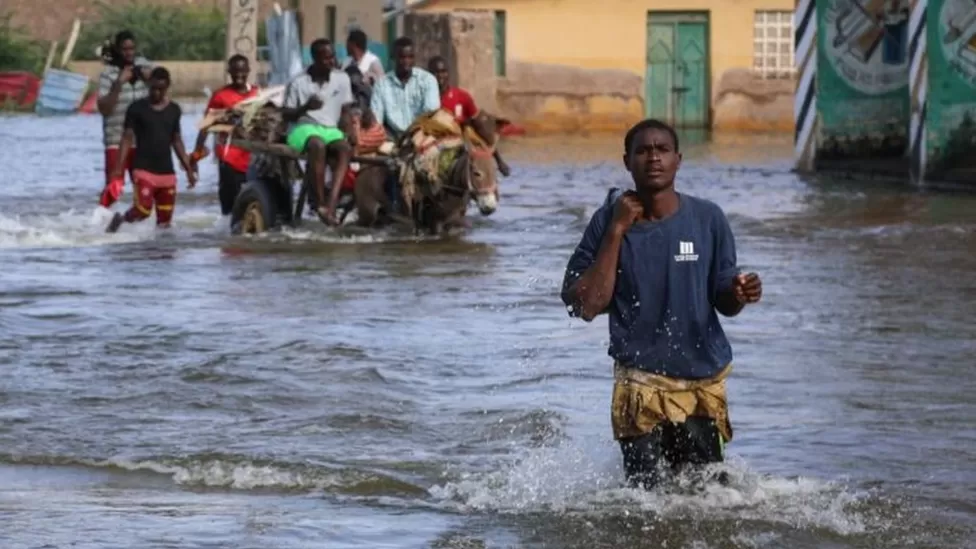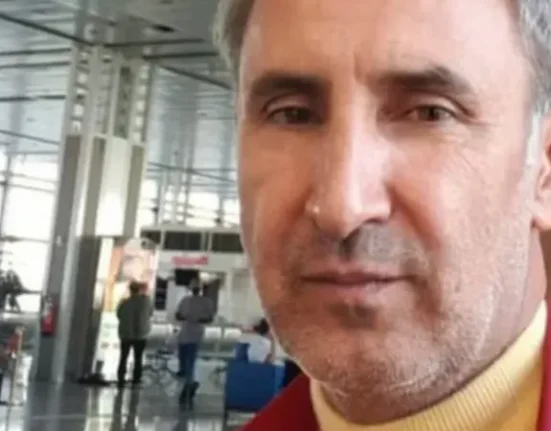At least 14 people have died because of flooding triggered by heavy rains in Somalia and thousands remain trapped.
The flooding began last month as water levels in the Juba and Shabelle rivers began to rise, causing them to overflow.
More than 47,000 people have fled their homes, the United Nations Humanitarian Affairs Agency (Ocha) says.
In Luuq district, 2,400 people are stuck in their own homes surrounded by water.

Bridges and roads have been destroyed by the downpours, making it difficult to reach affected households.
A number of toilets are overflowing into residential areas, raising the risks of water-borne diseases.
Jubbaland, Hirshabelle, and South West states are the most affected and the Somali government has declared an emergency in these areas.
The government is mobilizing resources in an effort to rescue people, Information Minister Daud Aweis wrote in a statement on X, formerly Twitter.
He appealed for more support, saying the situation was “critical”.
The country is experiencing heavier than-normal rains after emerging from one of its worst droughts in four decades, which may have killed some 43,000 people, the UN says.
Heavy downpours have devastated parts of East Africa over the last few weeks.
Kenya suffered a flood last week which left two people dead and one missing, according to the Associated Press.
Torrential rains have also been reported in Tanzania.
OCHA said in September that East Africa was likely to encounter heavier than normal rains over the October-December period because of the El Nino phenomenon.
El Niño is caused by the Pacific Ocean warming and is linked to flooding, cyclones, drought, and wildfires.
Many factors contribute to flooding, but a warming atmosphere caused by climate change makes extreme rainfall more likely.
The world has already warmed by about 1.1C since the industrial era began and temperatures will keep rising unless governments around the world make steep cuts to emissions.







